Despite ‘hijabgate,’ Iran ready to host women’s championship
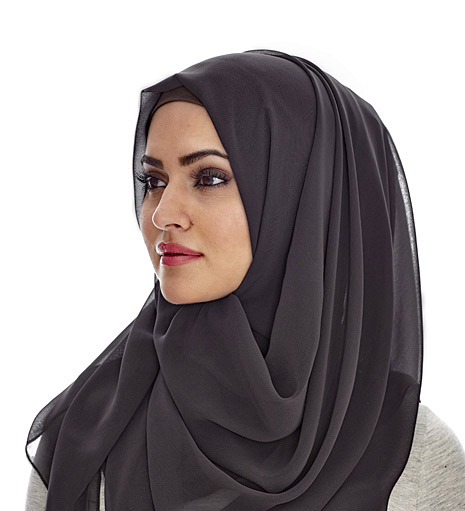
On February 10th, the Iranian capital of Tehran will begin hosting the 2017 Women’s World Chess Championships months after the “hijabgate” firestorm led by current U.S. women’s champion Nazi Paikidze. Given the heightened political U.S.-Iran tensions after the election of Donald J. Trump, it is unlikely that the two boycotting Americans would have felt comfortable, but the issue surrounding the mandatory head covering played into the adversarial narrative.
Paikidze, the current U.S. champion, decided to take a stance by boycotting the event stating that the mandatory hijab is an unreasonable demand. Her story got extensive media coverage (mostly in her favor), and she received support from a few chess celebrities. While some took a measured approach to criticism, other arguments were rather specious and uninformed about Islamic tenets and its diverse cultural practices. Still others, including Paikidze, equated the head coverings with “symbols of oppression.” While there were legitimate concerns, some in social media circles used the opportunity to justify their hatred of Islam and its adherents.
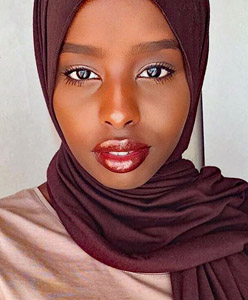
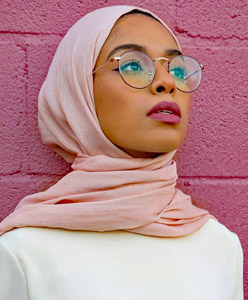
The hijab is a modest covering worn by many Muslim women. Apart from basic styles shown here, head coverings have become a bit more fashion forward, colorful and varied in their expressions. Photos from herbeauty.co
There was another issue broached concerning Iran’s right to host the tournament. In what quickly became a political fight, British chess legend Nigel Short contended that FIDE (World Chess Federation) awarded the event to a country that violates the bylaws of the body. Short, a former coach in Iran, cited in his argument FIDE statute 1.2 that “rejects discriminatory treatment for national, political, racial, social or religious reasons or on account of gender.”
Many (in retrospect) opposed the bid due to what they perceive as a violation of human rights. Some have countered that the U.S. and other western European nations lack moral high ground and have their own history of human rights violations against many different groups of people… including against Muslims. The event has unfortunately become a political football with U.S. vs. Iran, U.S. vs. FIDE, and other anti-FIDE battles.
Why did 159 FIDE members vote
in favor of the bid (with no objections)?
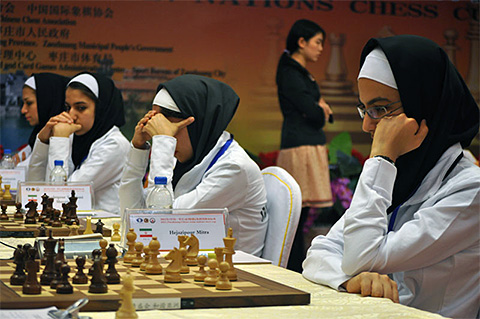
Iran at 2012 Asian Team in Zaozhuang, Shandong, China.
Photo by Mehrdad Pahlevanzadeh.
Of course, most travelers know that every society has laws that bind its citizenry and all who have permission to visit the country. Some are cultural, while some may be religious. Iran is a very complex Persian society with cultural and religious prescriptions for men and women (see Iran Chamber Society). The issue here seems to be that the mandatory head covering only pertains to women, which includes foreign visitors.
Many Muslims see the hijab as a symbol of modesty, and it is one of a multitude of styles for the head/body coverings. It is interesting that practically every major religion has had head coverings or adornments for women in their respective histories. In most cases, it is encouraged, but no longer compulsory except in some places of worship. What is shameful is how Muslim coverings have been targeted by Western media, often without the proper context or understanding.
Several of the women players have weighed in on the issue, and three decided to boycott the event. Susan Polgar released statements in her capacity as Chair of the FIDE Commission for Women’s Chess (WOM). When told women had previously complained of having to wear a head covering, Polgar told CNN,
This is news to me as not a single player spoke up or addressed it with WOM to date. The only thing that I heard was the event was well organized. So if these players would have informed WOM or FIDE about their problems or concerns at that time, the Women’s World Championship may have been awarded to a different organizer. … As you can imagine, it is a very difficult task to please everyone as players have different cultures, religious beliefs, political views, and at times personal interests. I can safely say that it is unlikely that 100% of the participants will completely agree with any particular issue. … Because of this delicate situation, we have to respect EVERYONE and handle things professionally and diplomatically in a proper setting.
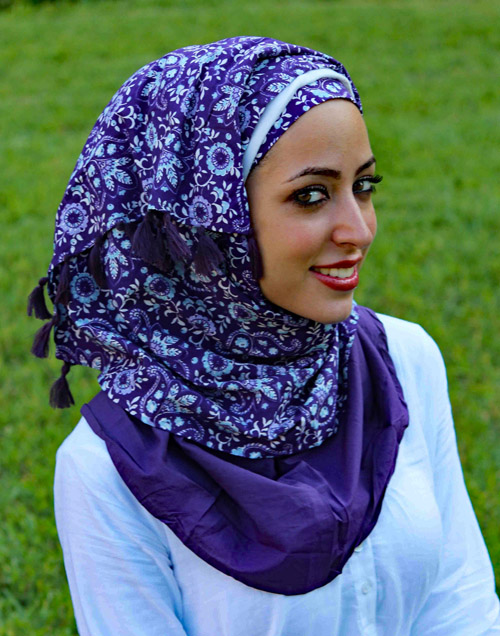
In a public statement and a series of tweets, Polgar urged the “respect of local customs and regulations.” Such behavior is expected in any country requiring such a cultural prescription. For example, if you are in a Muslim country during the month Ramadan, you are encouraged to abstain from eating in public during the daytime fast, even if you are not a Muslim. In most of India, it is unlawful to slaughter a cow and eat its flesh, even if you are not Hindu. In Singapore, chewing gum, spitting, jaywalking and even drinking on public transportation is prohibited and subject to fines. Of course, other cultural rules (i.e., removing shoes before entering a home, or not exposing the sole of one’s shoe) are merely social taboos that can lead to awkward situations or derision, but not arrest. In suggesting that one adhere to Iran’s local customs, the chess community attacked Polgar ruthlessly.
However, Paikidze’s claim is not merely due to the hijab requirement. After she had gathered more information on Iranian society, she cited human rights issues that concerned her. Her protest received widespread support, but with reservations by some Iranian activists. In fact, British-based, Iranian activist Ghoncheh Ghavami stated that “hijabgate” reinforced the oft-heard narrative that Muslim women are timid, weak and not progressive. While respecting Paikidze’s right to protest, Ghavami felt the boycott would be used for political opportunism by Iran’s enemies.
Obviously, I recognise Pakidize’s right – and that of every other human being – to choose how to dress and I applaud her insistence on her rights as a woman. But I believe that her choice to boycott the games is misguided. A reductionist approach to the mandatory hijab has, in the past, functioned as a pretext to reinforce a rift between Iran and the west, as well as insinuating that Iranian women are passive beings who simply lack the will to improve their situation.
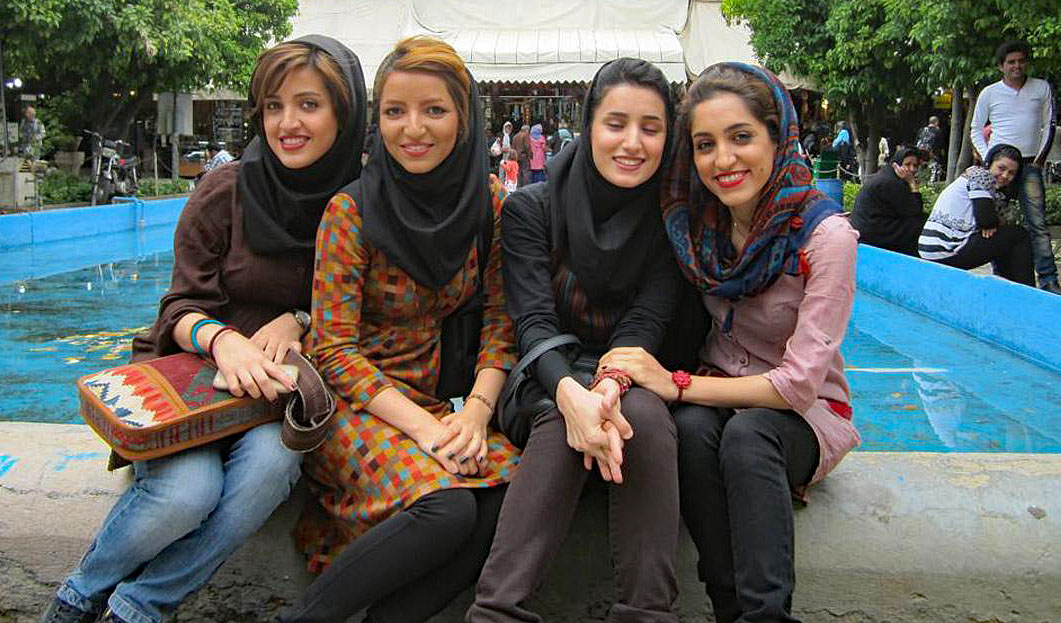
While Iran has many detractors in the West, the negative portrayals
about its people could not be more wrong.
Photo by Charles Glass
Women’s equality is a global issue and America is a country where President Trump has received harsh criticism for his “fat-shaming,” sexually suggestive, and crude comments about women. Millions of women around the world assembled for the “Women’s March on Washington” a day after Trump’s inauguration to protest what many saw was his tendency to engage in sexist hyperbole.
In the end, Paikidze found other reasons to nix the trip. She also opined that it is not safe for women around the world to play in Iran and posted the U.S. Department of State long-standing travel warnings for Americans. Perhaps one reason cascaded into others, and certainly, she is within her right to abstain if unable or unwilling to follow the law.
Current women’s world champion Hou Yifan has decided to exit from the women’s cycle to focus on playing elite competition. She also disapproves of the championship format which features a knockout tournament determining the world champion. Humpy Koneru of India withdrew for unknown reasons. The three not competing due to “hijabgate” were Pakidze, seven-time U.S. women’s champion Irina Krush and Mariya Muzychuk, a former world champion.
The hijab means different things to different people. Some see it as a symbol of oppression while some see it as a symbol of liberation.
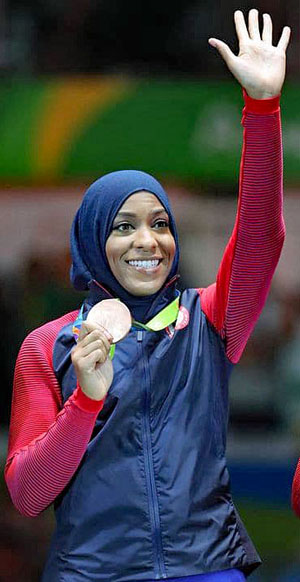
U.S. fencer Ibtihaj Muhammad received wide acclaim for wearing the hijab during the 2016 Olympics in Rio, where she won a bronze medal. Some Muslim women see coverings as a source of liberation from beauty objectification. Photo by Jason Getz (USA Today Sports)
Ecuadorean master Carla Heredia offers the view that no woman should be forced to wear a hijab or be forced to remove it if she chooses to wear it. The hijab has been a lightning rod for controversy and France had banned the head covering and other Muslim garments such as the “burkini,” the full-body beach covering worn by women. What would happen if Catholic nuns showed up on a French beach in their habits? This is what occurred in the famous burkini ban after a Muslim woman was made to disrobe in public by the police! Nuns showed up on the beach but were not made to remove their garments, so the discriminatory motive of the law was immediately noted.
The hijab means different things to different people. Some see it as a symbol of oppression while some see it as a symbol of liberation. The idea of hijab as a “symbol of oppression” further perpetuates stereotypes of Muslim women, fans the flames of Islamophobia that puts Islam and its adherents into ideological boxes. Profiling is the very reason that millions around the world protested the so-called “Muslim travel ban” signed by President Trump. The ban was ultimately overturned by the judicial branch.
While Muslims are being supported on the one hand, they are condemned on other counts. The world is entirely schizophrenic at this time as Samuel Huntington’s “Clash of Civilizations” is upon us. Nevertheless, this is a critical moment for countries seeking to maintain cultural or religious traditions. How does any country (Muslim or otherwise) proceed in a world where national cultures are eroding, traditions lost, and a global culture is emerging? This is a question all nations must address and is the crux of the raging debate on religion.
Official Website: https://tehran2017.fide.com/
Drum Coverage: https://www.thechessdrum.net/blog/2017/02/11/2017-womens-world-chess-championship-tehran-iran/


2017 Women’s World Chess Championship (Tehran, Iran)
https://www.thechessdrum.net/blog/2017/02/11/2017-womens-world-chess-championship-tehran-iran/
I don’t think the is is whether or not women should wear the hijab or not. In an international competition where women could potentially represent any country in the world. They should have the choice whether to wear it or not. Imagine because of Islamophobia, a country decides to ban all women from wearing the hijab. Would it be right for them to be allowed to hold the World Championships? In my opinion, countries that hold such international competitions should have no cultural or political restrictions on participants from any other countries in the world. For that very reason I would have been against the selection of Israel for the 1976 Olympiad.
Hector,
Thanks for the comment.
Unfortunately, when we visit foreign countries we generally don’t have a choice to pick and choose which of the local laws we will follow. We can do one of three things: follow the law, break the law and risk persecution, or do not travel. That situation exists in every country. Country’s laws are to protect its citizenry, its guests and also protect its national assets and cultural integrity. If a tourist can simply protest anything they don’t like when visiting a foreign country, imagine the chaos.
I believe it is highly impossible to find a country that has no cultural or political restrictions (who are economically capable) unless you are simply talking about a dress code. Russia still holds many of the top tournaments and no one has any objection to it. France has bans on religious paraphernalia. Most of Europe is dealing with security issues and the U.S. is in political turmoil. Regardless, other countries had the opportunity to bid on the event and they didn’t.
Bear in mind, no one objected to Iran hosting the event at the FIDE General Assembly. It was only after the uproar occurred that people started speaking of the political issues. Many political opportunists (not involved in chess) used Paikidze’s protest as a way to speak on Iran’s human rights record. So… if there were objections, why weren’t they raised during the discussion??? They voted 159-0 in favor, not 80-79.
Unfortunately, the hijab is in the news once again…
Kenyan Chess Player banned for impersonating woman
https://www.thechessdrum.net/blog/2023/04/11/chess-player-expelled-for-impersonating-a-woman/